Find Help
More Items From Ergsy search
-

Had a cough for three weeks or more? It could be a warning sign | NHS
Relevance: 100%
-
What are the early warning signs of an eating disorder?
Relevance: 73%
-

5 Warning Signs of Online Grooming
Relevance: 71%
-
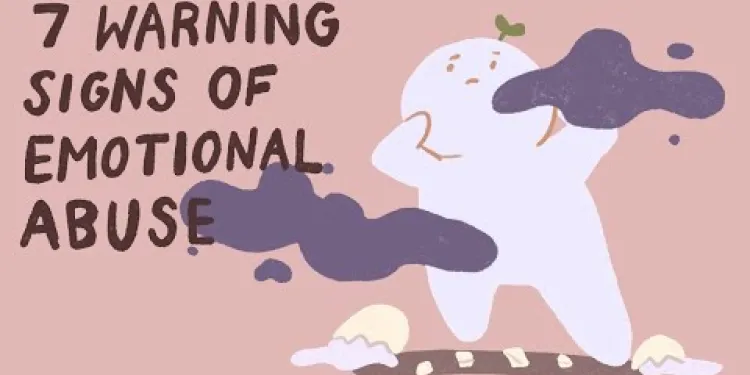
7 Warning Signs of Emotional Abuse
Relevance: 69%
-

What are the warning signs of a potential director dispute?
Relevance: 63%
-

Are unsolicited emails about weight loss drugs a warning sign?
Relevance: 57%
-

What is bronchiolitis in children? The symptoms, warning signs and when to seek medical help
Relevance: 56%
-

What should you do if you have a cough or cold?
Relevance: 53%
-

What are the warning signs that an elderly person should stop driving?
Relevance: 51%
-

Are there any early warning signs of a heart attack?
Relevance: 41%
-

What are the signs of heat exhaustion?
Relevance: 39%
-

What are the signs of meningitis in infants?
Relevance: 38%
-

What are some signs that my email might be hacked?
Relevance: 37%
-

What are the signs of honour based abuse?
Relevance: 36%
-

Worried about signs that could be cancer? Contact your GP practice | NHS
Relevance: 36%
-

What are the signs of autism?
Relevance: 34%
-

An Introduction to Decompression Illness: Signs & Symptoms”. Dr Roland Armes
Relevance: 34%
-

Legal Experts Warn of Consequences in Upcoming AI Regulation Bill
Relevance: 33%
-

Can tinnitus be a sign of hearing damage?
Relevance: 31%
-

What are common signs of being mis-sold car finance?
Relevance: 31%
-

How do you sign up for the Postcode Lottery?
Relevance: 31%
-

Experts Warn of Rising Hay Fever Cases as Pollen Counts Surge
Relevance: 30%
-
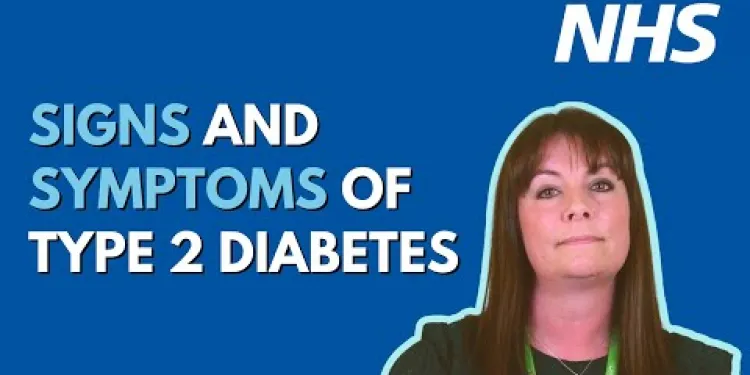
Type 2 diabetes - common signs and symptoms UHL NHS Trust
Relevance: 30%
-

Leukaemia: What are the signs and symptoms? | NHS
Relevance: 30%
-
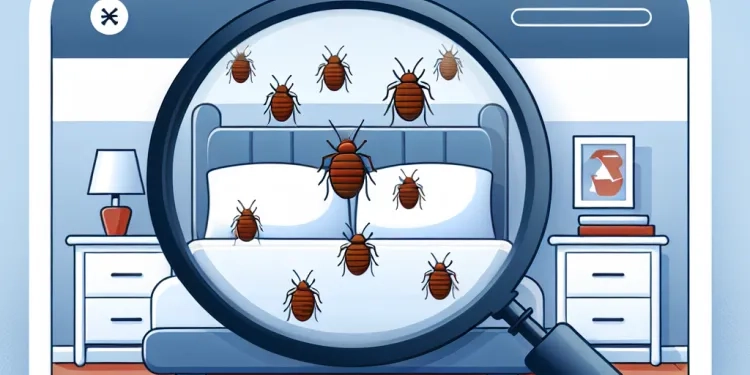
What are the signs of a bed bug infestation?
Relevance: 30%
-

What are the signs that my relationship is making me depressed?
Relevance: 30%
-

What are some signs of heat exhaustion?
Relevance: 30%
-

Health Officials Warn Against 'DIY' Health Remedies Amid Supply Chain Issues
Relevance: 29%
-
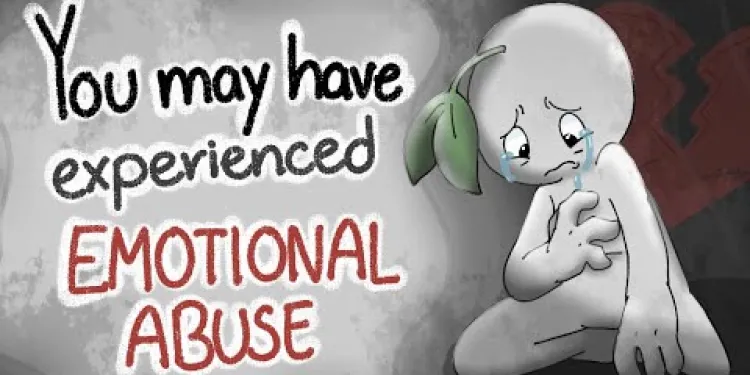
6 Signs of Emotional Abuse and Neglect
Relevance: 29%
-

What signs indicate that my social media account might be hacked?
Relevance: 29%
-

What is the first sign of Lyme disease?
Relevance: 29%
-

Dyspraxia Symptoms & Signs
Relevance: 29%
-

Ovarian cancer - signs and symptoms to look out for
Relevance: 28%
-

What are the signs that weight loss jabs are working?
Relevance: 28%
-

What are some signs of poor gut health?
Relevance: 28%
-

About Breast cancer - signs and symptoms | NHS
Relevance: 28%
-

What are common signs of leaks in water infrastructure?
Relevance: 28%
-
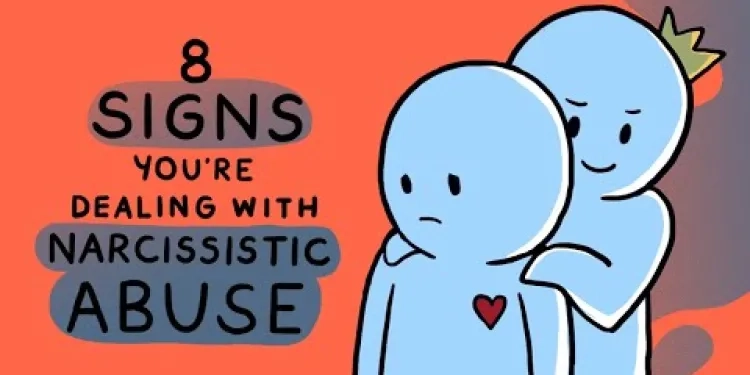
8 Signs You Are Dealing with Narcissistic Abuse
Relevance: 28%
-

How can I sign up to receive the HMRC Employer Bulletin?
Relevance: 28%
-

What are the common signs that a child might be a victim of grooming?
Relevance: 28%
Persistent Cough: A Possible Warning Sign
Understanding a Persistent Cough
If you've had a cough for three weeks or more, it might be more than just a common cold. A persistent cough can sometimes be a symptom of a more serious underlying health issue that requires medical attention.
Potential Causes
There are several potential causes for a long-standing cough. These can include:
- Chronic respiratory conditions such as COPD or asthma
- Infections like bronchitis or pneumonia
- Lung cancer
- Gastro-oesophageal reflux disease (GORD)
- Side effects from certain medications
When to Seek Medical Advice
According to the NHS, you should see your GP if you have a persistent cough that has lasted for more than three weeks. Early diagnosis and treatment are crucial, especially if the cough is accompanied by other symptoms such as chest pain, blood in your phlegm, or unexplained weight loss.
Diagnostic Procedures
To determine the cause of a persistent cough, your GP may recommend several diagnostic tests such as:
- Chest X-rays
- Spirometry (a test to assess lung function)
- CT scans
- Blood tests
Importance of Early Intervention
Early intervention can significantly improve treatment outcomes. For serious conditions such as lung cancer, early diagnosis can dramatically increase the chances of successful treatment. Therefore, do not delay in consulting your GP if you’ve had a cough for three weeks or more.
NHS Support Services
The NHS provides comprehensive support and resources for those dealing with persistent coughs and associated health issues. Make use of NHS services such as online health advice, NHS 111, and your local GP practice to get the help and information you need.
Conclusion
While a persistent cough can be worrying, understanding its potential seriousness and seeking timely medical advice can make all the difference. Stay vigilant and proactive about your health, and always consult with healthcare professionals for guidance.
Persistent Cough: A Possible Warning Sign
Understanding a Persistent Cough
If you have had a cough for three weeks or more, it might be more than just a cold. A cough that lasts a long time can be a sign of a bigger health problem. You might need to see a doctor.
Potential Causes
A cough that won't go away can happen for different reasons. Some of these can be:
- Long-term breathing problems like COPD or asthma
- Infections like bronchitis or pneumonia
- Lung cancer
- Gastro-oesophageal reflux disease (GORD), which is when stomach acid comes up
- Side effects from some medicines
When to Seek Medical Advice
The NHS says to see your GP if your cough lasts longer than three weeks. If you also have chest pain, blood in your phlegm, or lose weight without trying, see a doctor fast. Catching problems early can help you get better.
Diagnostic Procedures
To find out why you have a long-lasting cough, your GP might suggest some tests such as:
- Chest X-rays (pictures of your lungs)
- Spirometry (a test to see how well your lungs work)
- CT scans (detailed images of your body)
- Blood tests
Importance of Early Intervention
Getting help early can make treatments work better. For illnesses like lung cancer, finding it early can make treatment more successful. So, don't wait to see your GP if your cough lasts for three weeks or more.
NHS Support Services
The NHS has lots of help and advice for people with long-lasting coughs. You can use NHS online health advice, call NHS 111, or visit your GP for more information and support.
Conclusion
A cough that does not go away can be worrying. But understanding it and getting medical advice on time can help a lot. Take care of your health and talk to healthcare professionals if you need help.
Frequently Asked Questions
What should I do if I have had a cough for three weeks or more?
If you have had a cough for three weeks or more, you should contact your GP for an evaluation. Persistent coughing could be a sign of a more serious condition.
Why is a cough lasting three weeks or more a concern?
A cough lasting three weeks or more might be a warning sign of chronic respiratory conditions such as asthma, a chest infection, or even lung cancer.
Is a persistent cough always an indication of lung cancer?
No, a persistent cough isn't always indicative of lung cancer. However, it is one possible cause, and it's important to get it checked to rule out serious conditions.
Can lifestyle factors contribute to a chronic cough?
Yes, lifestyle factors like smoking can contribute to a chronic cough. Exposure to pollutants, allergens, and other irritants can also play a role.
What other symptoms should I watch for in addition to a persistent cough?
Other symptoms to watch for include coughing up blood, unexplained weight loss, persistent chest pain, shortness of breath, and fatigue.
How will my GP diagnose the cause of my persistent cough?
Your GP may perform a physical examination, ask about your medical history, and may recommend tests like a chest X-ray, blood tests, or sputum tests to diagnose the cause.
Can medications cause a chronic cough?
Yes, certain medications, such as ACE inhibitors used for high blood pressure, can cause a chronic cough as a side effect.
What home remedies can I try for a persistent cough?
Home remedies for easing a cough include staying hydrated, using a humidifier, drinking warm fluids like tea with honey, and avoiding irritants such as smoke.
Is a persistent cough contagious?
A persistent cough can be contagious if it is caused by an infection such as tuberculosis or a cold. It's important to practice good hygiene to prevent spreading infections.
Can allergies cause a cough that lasts several weeks?
Yes, allergies can cause a chronic cough if you are consistently exposed to allergens like pollen, dust mites, or pet dander.
Should children with a persistent cough also see a GP?
Yes, if a child has a persistent cough lasting more than three weeks, it's important to consult a GP to determine the cause and appropriate treatment.
What are some serious conditions associated with a chronic cough?
Serious conditions that can cause a chronic cough include chronic obstructive pulmonary disease (COPD), lung cancer, tuberculosis, and interstitial lung disease.
Can acid reflux cause a persistent cough?
Yes, acid reflux can cause a persistent cough due to irritation of the esophagus and the respiratory tract.
Are there specialist services for diagnosing chronic cough in the UK?
Yes, there are specialist respiratory services within the NHS that can provide further evaluation and treatment for chronic cough.
What steps can I take to prevent chronic cough?
To prevent chronic cough, avoid smoking, reduce exposure to pollutants and irritants, treat underlying medical conditions, and follow a healthy lifestyle to support respiratory health.
What to do if you have been coughing for three weeks or more?
If you have been coughing for three weeks or more, here are some steps you can take:
- Tell an adult: Make sure you let a grown-up know about your cough.
- See a doctor: It's important to visit a doctor. They can help find out why you are still coughing.
- Write down symptoms: Keep a note of any other things you feel, like a sore throat or tiredness. This can help the doctor.
- Use a calendar: Mark the days you have a cough on a calendar so you can see how long it's been.
- Follow doctor's advice: The doctor might give you medicine. Be sure to take it as told.
These tools and tips can help you feel better.
If you have been coughing for three weeks or longer, you should talk to your doctor. Coughing for a long time might mean something else is wrong.
Why is a cough that lasts three weeks a worry?
If your cough lasts for three weeks or more, it could mean you are not getting better. It is important to see a doctor.
Here are some helpful tips:
- Ask someone to help you read this.
- Use a dictionary to understand hard words.
- Look for pictures or videos about coughs.
If you have a cough that doesn't go away for three weeks or more, it could be a sign that something is wrong with your lungs. It might be asthma. It could be a chest infection. It could also be something more serious, like lung cancer.
Does having a cough for a long time mean you have lung cancer?
A cough that won't go away can be scary. But it doesn't always mean cancer.
If you have a cough that lasts for weeks, see a doctor. They will help find out what's wrong.
There are many reasons for a long cough, like a cold, allergies, or asthma.
Remember, doctors can help you. They know how to find out why you're coughing.
It's good to tell someone how you feel. Friends and family can support you. Tools like books or videos can explain things in simple words. Apps can also help you remember what the doctor says.
A cough that won't go away doesn't always mean you have lung cancer. But sometimes it might be. So, it's a good idea to see a doctor to make sure everything is okay.
Can the way you live cause a long-lasting cough?
Yes, things like smoking can make you cough a lot. Breathing in dirty air, dust, or other things that irritate your throat can also make you cough.
Here are some tips to help:
- Try not to smoke.
- Stay away from places with dirty air or smoke.
- If dust or pollen makes you cough, try to keep your space clean and free of these.
What other signs should I look for besides a cough that won't go away?
A persistent cough is a cough that stays for a long time. You should also watch for other signs. Here are some signs to look for:
- Are you feeling really tired all the time?
- Is there pain when you breathe or cough?
- Is your chest feeling tight?
- Do you have a fever or feel really hot?
- Is it hard to breathe easily?
If you feel these signs or are worried, it's a good idea to ask a grown-up or doctor for help. They can make you feel better.
Remember, you don't have to figure it out all by yourself. There are tools like picture cards or apps to help explain things. You can also ask someone to read with you or help explain the words.
Things to look out for:
- Coughing and seeing blood.
- Losing weight without knowing why.
- Having chest pain that doesn't go away.
- Finding it hard to breathe.
- Feeling very tired all the time.
It can help to write down how you feel each day. You can also ask someone you trust, like a family member or friend, to help you keep track. If you notice these problems, talk to a doctor.
How will my doctor find out why I keep coughing?
If you keep coughing, your doctor will try to find out why. To help, they might:
- Ask you questions about your cough.
- Listen to your chest with a stethoscope.
- Ask if you have any other symptoms, like a fever or sore throat.
- Send you for a special picture of your chest, called an X-ray.
- Ask you for a tiny bit of spit to test it.
These things help the doctor learn what might be causing your cough.
Your doctor might check your body and ask about your health history. They might ask you to have tests like a chest X-ray, blood tests, or spit tests to find out what is wrong.
Can medicines make you cough for a long time?
Yes, some medicines for high blood pressure, like ACE inhibitors, can make you have a cough that doesn't go away. This is a side effect.
What can I do at home to help with a cough that won't go away?
If your cough won't stop, here are some things you can try at home:
- Drink warm drinks: Hot tea or warm water with honey can help soothe your throat.
- Use a humidifier: A humidifier adds moisture to the air, which can help your throat feel better.
- Try honey: Eating a spoonful of honey can help calm your cough.
- Rest: Make sure you get plenty of sleep to help your body fight off the cough.
If your cough stays for a long time, it might be good to talk to a doctor.
If you have a cough, there are some easy things you can do at home to feel better. Try to drink lots of water. You can use a humidifier to add moisture to the air. Warm drinks, like tea with honey, can help too. Stay away from things that make your cough worse, like smoke.
Can a cough that won't go away make other people sick?
If someone keeps coughing, the cough might spread to others if they have an infection like a cold or something called tuberculosis. It's important to stay clean and wash your hands to stop others from getting sick.
Can allergies make you cough for a long time?
Yes, allergies can make you cough a lot. This can happen if you are always around things like pollen, dust mites, or pet hair.
Should children with a cough that won't go away see a doctor?
If a child has a cough that does not stop, it's a good idea to visit a doctor.
This can help the child get better and make sure they are okay.
A doctor is someone who helps us when we are sick or have health problems.
You can take notes to tell the doctor about the cough. Try writing down:
- How long the cough has lasted.
- If the child feels unwell in other ways.
- Any medicine they are taking.
This makes it easier for the doctor to help.
If a child keeps coughing for more than three weeks, it's important to see a doctor. The doctor can help find out why the child is coughing and how to make it better.
What can cause a long-lasting cough?
A cough that does not go away can be a sign of something more serious. Here are some possible causes: 1. **Asthma**: This is when it is hard to breathe because the airways are tight. 2. **Lung Infection**: Sometimes, germs can make the lungs sick, like in pneumonia. 3. **Heart Problems**: If the heart isn’t working well, it might make you cough. 4. **Long-Term Smoking**: Smoking for many years can hurt the lungs and cause a bad cough. If you have a cough that lasts a long time, it is important to see a doctor. They can help figure out what is wrong and make you feel better. **Helpful Tip**: Write down when you cough and how it feels. This can help the doctor understand your cough better.Some serious lung problems can make you cough for a long time. These problems include:
- COPD (a lung disease that makes it hard to breathe)
- Lung cancer (a serious illness that grows in the lungs)
- Tuberculosis (a long-lasting lung infection)
- Interstitial lung disease (when lungs get scarred and it's hard to breathe)
If you have a long-lasting cough, it's important to see a doctor. They can help you understand what's wrong and find the best way to help you feel better.
Can acid reflux make you cough a lot?
Yes, acid reflux can make you cough a lot. This happens because the throat gets irritated.
Can doctors in the UK help find out why someone keeps coughing?
Yes, there are special doctors in the UK who can help. These doctors can find out why someone has a cough that won't go away. If you have a long-lasting cough, it is a good idea to see these doctors. They can give you the right help.
Using pictures or making a list can help you remember what the doctor says. A friend or family member can also help you at the doctor's visit.
Yes, there are special places in the NHS that can help with breathing problems. They can check and treat if you have a cough that does not go away.
How can I stop a bad cough that lasts a long time?
To stop a long-lasting cough:
- Don't smoke.
- Stay away from dirty air and things that can make you cough.
- Take care of any health problems you have.
- Live healthily to keep your lungs strong.
You can also use tools like apps or simple checklists to remember these steps.
Useful Links
This website offers general information and is not a substitute for professional advice.
Always seek guidance from qualified professionals.
If you have any medical concerns or need urgent help, contact a healthcare professional or emergency services immediately.
- Ergsy carfully checks the information in the videos we provide here.
- Videos shown by Youtube after a video has completed, have NOT been reviewed by ERGSY.
- To view, click the arrow in centre of video.
- Most of the videos you find here will have subtitles and/or closed captions available.
- You may need to turn these on, and choose your preferred language.
- Go to the video you'd like to watch.
- If closed captions (CC) are available, settings will be visible on the bottom right of the video player.
- To turn on Captions, click settings .
- To turn off Captions, click settings again.
More Items From Ergsy search
-

Had a cough for three weeks or more? It could be a warning sign | NHS
Relevance: 100%
-
What are the early warning signs of an eating disorder?
Relevance: 73%
-

5 Warning Signs of Online Grooming
Relevance: 71%
-

7 Warning Signs of Emotional Abuse
Relevance: 69%
-

What are the warning signs of a potential director dispute?
Relevance: 63%
-

Are unsolicited emails about weight loss drugs a warning sign?
Relevance: 57%
-

What is bronchiolitis in children? The symptoms, warning signs and when to seek medical help
Relevance: 56%
-

What should you do if you have a cough or cold?
Relevance: 53%
-

What are the warning signs that an elderly person should stop driving?
Relevance: 51%
-

Are there any early warning signs of a heart attack?
Relevance: 41%
-

What are the signs of heat exhaustion?
Relevance: 39%
-

What are the signs of meningitis in infants?
Relevance: 38%
-

What are some signs that my email might be hacked?
Relevance: 37%
-

What are the signs of honour based abuse?
Relevance: 36%
-

Worried about signs that could be cancer? Contact your GP practice | NHS
Relevance: 36%
-

What are the signs of autism?
Relevance: 34%
-

An Introduction to Decompression Illness: Signs & Symptoms”. Dr Roland Armes
Relevance: 34%
-

Legal Experts Warn of Consequences in Upcoming AI Regulation Bill
Relevance: 33%
-

Can tinnitus be a sign of hearing damage?
Relevance: 31%
-

What are common signs of being mis-sold car finance?
Relevance: 31%
-

How do you sign up for the Postcode Lottery?
Relevance: 31%
-

Experts Warn of Rising Hay Fever Cases as Pollen Counts Surge
Relevance: 30%
-

Type 2 diabetes - common signs and symptoms UHL NHS Trust
Relevance: 30%
-

Leukaemia: What are the signs and symptoms? | NHS
Relevance: 30%
-

What are the signs of a bed bug infestation?
Relevance: 30%
-

What are the signs that my relationship is making me depressed?
Relevance: 30%
-

What are some signs of heat exhaustion?
Relevance: 30%
-

Health Officials Warn Against 'DIY' Health Remedies Amid Supply Chain Issues
Relevance: 29%
-

6 Signs of Emotional Abuse and Neglect
Relevance: 29%
-

What signs indicate that my social media account might be hacked?
Relevance: 29%
-

What is the first sign of Lyme disease?
Relevance: 29%
-

Dyspraxia Symptoms & Signs
Relevance: 29%
-

Ovarian cancer - signs and symptoms to look out for
Relevance: 28%
-

What are the signs that weight loss jabs are working?
Relevance: 28%
-

What are some signs of poor gut health?
Relevance: 28%
-

About Breast cancer - signs and symptoms | NHS
Relevance: 28%
-

What are common signs of leaks in water infrastructure?
Relevance: 28%
-

8 Signs You Are Dealing with Narcissistic Abuse
Relevance: 28%
-

How can I sign up to receive the HMRC Employer Bulletin?
Relevance: 28%
-

What are the common signs that a child might be a victim of grooming?
Relevance: 28%


